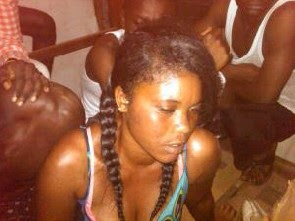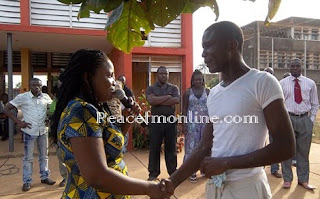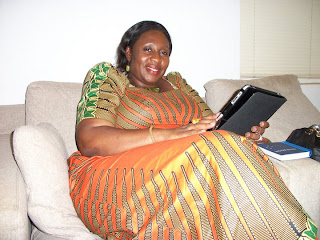DAKAR, 1 August 2011 (PlusNews) - Recent condemnation of homosexuality by religious and political leaders in Ghana has led to a climate of fear preventing men who have sex with men (MSM) from accessing vital health services, say local NGOs.
The minister of Ghana's Western Region, Paul Evans Aidoo, publicly described homosexuality as "detestable and abominable" after media reports in late May that 8,000 homosexuals had registered with health NGOs in the country's west (the information appears to come from records kept by the NGOs of people who accessed services for MSM). Aidoo has since called for increased security in the region and the arrest of all homosexuals. Other religious leaders and politicians have followed suit, condemning homosexual activity.
As a result, far fewer MSM are accessing safe sex education and support programmes run by the Centre for Popular Education and Human Rights (CEPEHRG) to prevent the spread of HIV, said MacDarling Cobbinah from the Coalition against Homophobia in Ghana and a member of CEPEHRG.
"It has brought about a lot of fear and stigma for the people. It is difficult to organize programmes," Cobbinah said. "It is very difficult for people to walk freely on the street… The call for arrest has really pushed people down."
He added that one of his colleagues was recently accused of being gay and beaten up by a group of men.
Cobbinah said numbers had dropped at a regular HIV peer education programme that once had more than 20 people attending; two weeks ago only half the people came, and last week no one came, he told IRIN on 27 July. "They said, 'If we come, we might be arrested.'"
An estimated 25 percent of Ghanaian MSM were HIV-positive in 2006, according to the US Agency for International Development (
USAID).
According to the UN World Health Organization, since the beginning of the epidemic in the early 1980s, MSM have been disproportionately affected by HIV. The organization said
social discrimination of MSM led them to delay or avoid seeking HIV-related information, care and services.
Other organizations in Ghana are also facing obstacles to providing vital services. An NGO based in the Western Region's capital Sekondi-Takoradi, which distributes condoms and safe sex information to MSM, told IRIN that since Aidoo increased security and called for arrests they have felt threatened.
Male-to-male sexual relations are a crime in Ghana. Considered a misdemeanor, it carries a maximum sentence of six months, according to Kissi Agyabeng, a law lecturer at the University of Ghana. However, despite Aidoo's calls for a crackdown, arrests do not yet appear to be taking place.
A spokesperson for the Sekondi-Takoradi NGO, who did not want his name or the organization's name published for security reasons, said the NGO was now coming under pressure from the government to stop their work on HIV prevention if they did not reveal the names of MSM who have registered to use their services.
Stopping this work would affect thousands of people. In 2008, 2,900 people accessed their services, and by this year numbers had quadrupled, the spokesperson said.
Motivations Cobbinah said the current climate of homophobia is a reaction to growing awareness of homosexuality in the country. When the figure of 8,000 homosexuals surfaced, he said, "it shocked most people… They thought [the number of] gays was growing".
Rachel Spronk, a Ghana-based researcher on sexuality, said in this environment homophobic sentiment feeds off itself. "Leaders feel they have to respond to it," she said. "People who have never [previously] thought about it are speaking out."
Researchers and human rights workers have also indicated an underlying motivation for the current condemnation may be political point-scoring as the 2012 elections approach.
Spronk said the current public debate "is not happening by coincidence… Leaders have to make their position [and themselves] visible for election."
Graeme Reid, director of Human Rights Watch's lesbian, gay, bisexual and transgender rights programme, pointed out it was not uncommon for "gay issues [to be] used as a distraction against economic and political concerns, uniting people against a common enemy".
Un-African behaviour? While hardly unique to Africa,
homophobia appears to be rising on the continent.
Reid said this began when Zimbabwe's President Mugabe condemned homosexuals at an international book fair in 1995 after a gay and lesbian group applied to open a stand there. "This was the first time there was a public statement from the president of an [African] country condemning gays and lesbians."
He said this was followed by statements by other African presidents, and more recently there had been a wave of anti-homosexual sentiment in sub-Saharan Africa.
Spronk said part of the reason for the spread of homophobic statements is the use of language such as "un-African". When this is used in one country, it invokes issues of identity across the continent, she said. "It appeals to African identity and culture, people feel they have to respond to it."
Ghana's Deputy Information Minister Samuel Okudzeto Ablakwa told IRIN the president considered homosexuality "alien to our culture".
"It also ties into ideas about colonialism," Reid said. "People say it has been imposed on Africa by the West."
Fred Degbe, general secretary of Ghana's Christian Council, said Ghanaians and Africans cherished "rich values on such issues as homosexuality" and must not allow others "to impose what is acceptable in their culture on us".
wb/sda/np/cb
Read report online


Comments
Post a Comment